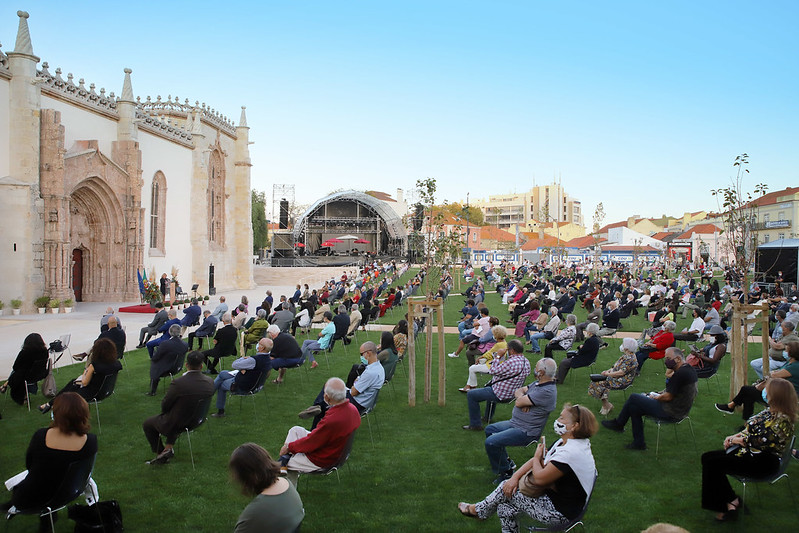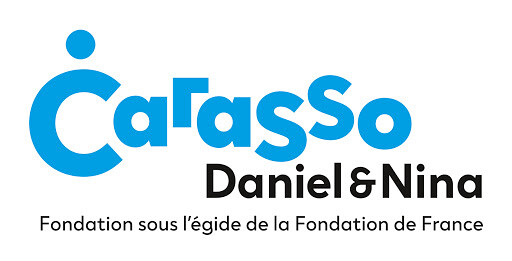Cultural Deal for Europe
Cultural Deal for Europe campaign is call for European Union to place culture at the heart of its political vision and ambition for years to come. Launched in November 2020 by Culture Action Europe, the European Cultural Foundation and Europa Nostra, acting also on behalf of the European Heritage Alliance, the campaign asks for culture and cultural heritage to be duly included in the EU’s recovery and funding programmes, its sustainable development strategies, and its relations with the rest of the world. Thousands of organisations and individuals endorsed the Cultural Deal for Europe campaign alongside the support of 110 European networks. The unprecedented challenges and unforeseen circumstances Europe and the world are currently facing call for coordinated and bold actions, from decision-makers and civil society alike: locally, regionally, nationally, across Europe and beyond.
Eurocities Lille Call to Action for low carbon and more inclusive culture
The “Call to Action for low carbon and more inclusive culture” initiative, led by the city of Lille and Eurocities, invites mayors from across Europe to commit to the development of local cultural policies and events that prioritise sustainability and inclusivity. The Call is structured around 16 priorities, categorised into two pillars: the ecological transition of local cultural policies and events, and inclusion in culture and through culture. By signing it, cities commit to developing sustainable and inclusive cultural policies, implementing at least one principle from each pillar, and providing examples of their initiatives each year. Cities lead the way with projects encouraging the circular economy in culture, commissioning green artistic projects, or supporting sustainable museums and exhibitions. The inspiration for this call to action emerged from the Eurocities Culture Forum, which was hosted by the city of Lille and the European Metropolis of Lille in 2022, and focused on the theme of ‘Resilient and sustainable culture – local cultural policies supporting the ecological transition’. The city of Lille developed a draft, which was subsequently enriched with contributions from other Eurocities members. This is a significant step towards a more sustainable and inclusive cultural landscape across Europe.
Culture 21: Actions. Commitments on the role of culture in sustainable cities
“Culture 21: Actions” was approved in 2015 in Bilbao during the first Culture Summit of UCLG. This document renews the commitments of United Cities and Local Governments to highlight the interdependent relationship between citizenship, culture, and sustainable development. “Culture 21: Actions” supplements the Agenda 21 for Culture, and transforms it into concrete commitments and actions. It aims to be an international guide that is applicable worldwide and that promotes knowledge. It facilitates the exchange of good practices, and strengthens a global network of effective and innovative cities and local governments. Among its nine Commitments, Culture and Environment incorporates a list of specific actions that guide the work of local governments linked to Agenda 21 for Culture and which promote processes of self-evaluation leading to better fulfilment and more effective implementation of public policies and strategies.
European Cultural Heritage Green Paper “Putting Europe’s shared heritage at the heart of the European Green Deal”
 Credits: Municipality of Setúbal, CC BY-NC-SA 2.0
Credits: Municipality of Setúbal, CC BY-NC-SA 2.0The paper correlates the contribution of cultural heritage to all key areas of the European Green Deal, including Clean Energy, Circular Economy, the Renovation Wave, Smart Mobility, Farm to Fork, Green Finance and a Just Transition, Research and Innovation, Education and Training, as well as Green Deal Diplomacy. It proposes a series of concrete recommendations both for policy-makers and for cultural heritage stakeholders. Potential conflicts, real or perceived, between heritage safeguarding and European Green Deal action are also identified, as well as win-win strategies for overcoming these conflicts.
Funder Commitment on Climate Change
Launched in 2019, the Funder Commitment on Climate Change (FCCC) presents a comprehensive and overarching framework that empowers funders across diverse fields of expertise, primarily within the UK, to actively contribute to addressing the root causes and consequences of climate change. Comprising six pillars of action (Education and Learning, Resource Allocation, Integration, Investment Stewardship for a Post-Carbon Future, Operational Decarbonisation, and Progress Reporting), this commitment provides foundations with a robust structure to effectively combat climate change. Signatories commit to aligning their strategies with climate considerations and making specific pledges in order to support initiatives and address climate-related challenges financially.
In 2023, the FCCC unveiled its third report, detailing the endeavours undertaken by signatories across these pivotal pillars. This report underscores the ongoing enhancement of existing initiatives. It outlines the strides made, particularly by new signatories, as they embark on their journey to make tangible progress in all areas.
Gala manifesto
The Green Art Lab Alliance (gala) is a diverse alliance initiated by artists and cultural practitioners seeking to address the breadth of environmental problems that beset the world. Since 2012, the gala has grown with partners in Europe, Asia, and Latin America. In light of the extreme urgency of our global crisis, the organisations that comprise the alliance have come together to bolster and amplify their manifold efforts to secure a sustainable future, and they are all committed to their co-written manifesto.
Global Call to Put Cultural Heritage, Arts and Creative Sectors at the Heart of Climate Action
The Climate Heritage Network (CHN) is a voluntary, mutual support network of government agencies, NGOs, universities, businesses, and other organisations committed to tackling climate change and achieving the ambitions of the Paris Agreement. The network was launched in 2019 and works to reorient climate policy, planning, and action at all levels to account for dimensions of culture, from arts to heritage. ‘Culture at the Heart of Climate Action’ is a global call to the UNFCCC to include cultural heritage, the arts and creative sectors in climate policy. The initiative is asking for a ground-breaking Joint Work Decision on Culture and Climate Action, a UN process which would trigger policies and frameworks to enable culture to contribute fully to climate solutions. A JWD would launch a process to: understand how culture is already supporting climate actions and solutions; support cultural voices to influence audiences and consumers; unite the entire culture sector globally to scale up action on the most pressing issue of our time; influence key policies and discussions on adapting to the changing climate, decarbonising, supporting cultural knowledge keepers, safeguarding heritage and culture, and innovating with creativity.
Green Arts Charter
The Green Arts Charter aims to help cultural organisations with their sustainability goals, to enable collective action, and establish shared goals and pledges.
The charter aligns with the Creative Carbon Scotland training programme to support organisations to deliver the pledges and commitments within the charter, alongside its growing online network to encourage peer-to-peer learning.
The charter runs parallel with and is connected to Creative Scotland’s criteria for funding programmes where organisations are asked about their environmental sustainability commitments or, in some cases, to report on their emissions and have a carbon management plan.
How sustainability and culture reinforce each other: “Culture Natural” recommendations
The Council for Culture is a statutory body entrusted with advising the Dutch Government and Parliament on matters related to the arts, culture, and media. It provides recommendations regarding cultural policy in the Netherlands, whether solicited or not. In 2023, the Council published a report titled “Cultuur Natuurlijk. Hoe duurzaamheid en cultuur elkaar versterken”, highlighting the potential synergy between sustainability and culture. However, it underscores the urgent need for a significant push to expedite sustainability efforts within the cultural sector. This advisory report targets the cultural sector, municipalities, provinces, national cultural funds, and the relevant ministries. The Council for Culture’s recommendations aim to expedite the sustainability transformation within the cultural sector and elevate culture’s role in broader societal sustainability initiatives. It acknowledges that, like many other sectors, the culture sector has yet to achieve climate neutrality and circularity.
The scope of culture in this report encompasses the arts, heritage, creative industry, and the media, both subsidised and unsubsidised. Advice is directed at the cultural sector and various governmental bodies, including pertinent ministries and national cultural funds, emphasising the nexus between sustainability and culture.
French Coalition of Foundations for Climate
Conscious that the most significant challenge of our time is the fight against climate change, but that it is still insufficiently considered, the French Coalition of Foundations for Climate (CFFC) is committed to mobilising the entire philanthropic sector around this priority issue. More than just a manifesto, it is a call to action, collective mobilisation, and engagement.
Towards sustainable arts: European best practices and policies
In seven chapters, experts from the Czech Republic, Finland, Flanders, Germany, the Netherlands, Scotland and Spain investigate how cultural organisations in their own countries are becoming more sustainable, how artists are engaging with the climate crisis, and the role of culture in the general transition towards a greener society. While each chapter contains many inspiring initiatives and ideas unique to each country, there are also striking similarities. In most countries, sustainability is absent from national cultural policy, and culture is absent from climate policy. There is however a need for sustainable cultural policy: among other things to counter fragmentation of initiatives, to enhance collaboration or to offer funding, support and financial security. Another significant observation underlying all contributions is the importance of collaboration and of networks, which have achieved great results in the countries included in the publication. Authors are: Pavla Petrová (Czech Republic / Arts and Theatre Institute), Maria Hirvi-Ijäs, Anna Kanerva, Marjo Mäenpää (Finland / Cupore), Nikol Wellens (Flanders / Kunstenpunt), Marje Brütt (Germany / Kulturpolitische Gesellschaft), Sofie Krop, Mareile Zuber (The Netherlands / Het Groene Cultuur Bureau), Ben Twist, Katherine Denney (Scotland / Creative Carbon Scotland), Jordi Baltà Portolés and Herman Bashiron Mendolicchio (Spain / Trànsit Projectes and University of Barcelona).


